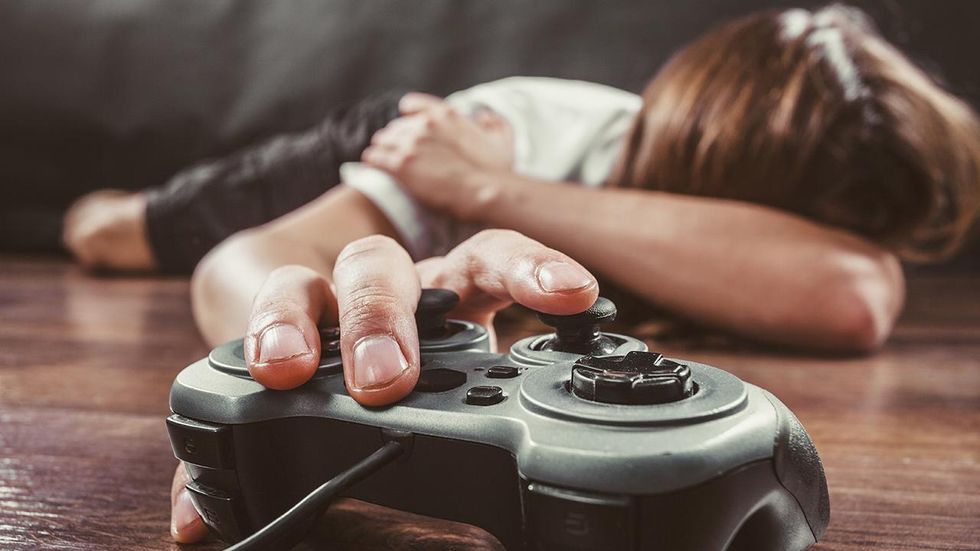
A new study confirms that addiction to video games can alter children's brains, similar to drug abuse or alcoholism. (Voyagerix/Getty Images)

MRI scans show that "Fortnite" and other addictive video games can impact children’s brains in ways similar to drug abuse or alcoholism, the Telegraph reported.
The scans show the “changes in function and structure” in the “reward” portion of the brain are the same as those in alcoholics and drug addicts.
“A series of studies by California State University found the impulsive part of the brain, known as the amygdala-striatal system, was not only more sensitive but also smaller in excessive users so that it processed the stimuli of social media or games faster,” according to the report.
The concerns are being raised amid what is called a new generation of young people who some say are being harmed by excessive use of social media and online video games.
Addiction to "Fortnite" is becoming an epidemic in Britain, according to the report. Some primary schools are urging parents to ban children from using it and other so-called addictive games.
In one case, a 9-year-old was so addicted that she soiled herself rather than move from her computer screen to use the restroom.
Studies led by professor Ofir Turel, of California State University, explained how a young person’s brain is impacted:
Say someone sees a video game or cellphone, this reward system in the brain lights up. It’s a very strong activation compared to other people.It is associated with structural change in that this brain area is smaller in people who are excessive users. The smaller system can process associations much faster. But like a car, you need to put more gas into it to generate more power.
On the plus side, the study showed that the self-control area of the brain was generally not impacted.
“It means most people can control their social media behavior but they just don’t have the motivation to do so,” Turel told the Telegraph.
Adding to the concerns is whether video game addiction could make children more susceptible to other addictions later in life.
Turel’s research showed that heavy video game users between the ages of 13 to 15 have an increased likelihood of abusing “at least one of 15 substances from cocaine to amphetamines.”
Additionally, the research suggest that internet addiction may limit the connections between the right and left sides of the brain, the Telegraph reported.
“When the tracks that connect these parts of the brain are not efficient, people are more prone to develop addictions,” Turel said.
This week, the Daily Telegraph began its Duty of Care campaign, a call to make social media giants and online gaming subject to regulations that protect children from “addiction, bullying and grooming when using their services,” according to the report.
In January, the World Health Organization declared that internet gaming addiction is considered a mental disorder.